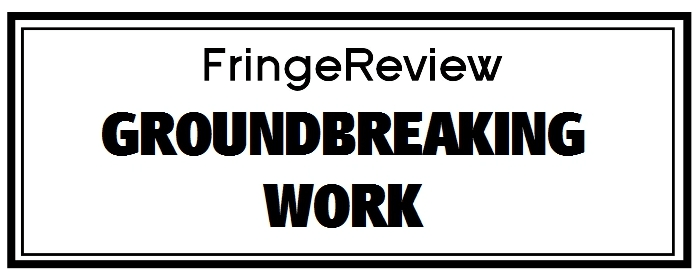Brighton Festival 2019
Séancers
Jaamil Olawale Kosoko

Genre: Contemporary, Performance Art
Venue: Attenborough Centre for the Creative Arts
Festival: Brighton Festival
Low Down
A heady and compelling investigation of time, space, race and what it is to be a performer embodying your past whilst being present. In his seance Kosoko is invoking black poets and artists, and the dead members of his own family.
Review
We’ve all arrived on time and are sitting here waiting. We’ve read that the performance lasts 65 minutes. We look around; there are night-lights on the floor and nighties hanging above the stage. There are books and candles in nooks around the auditorium. The stage has a mass of white sparkling fabrics in the centre and a silver reflective backdrop, clubby and bohemian in vibe. A low hum. We wait. Time here is about to shift, and with it any expectations of what this performance might be and our place in it.
Kosoko asks audiences to think about what preconceived notions they bring into the space and how together we can meld the theatrical with the theoretical. It is a piece that builds from seemingly slight to magnificently rich.
It opens with Kosoko moving among the audience swishing his fine cloak, making a little magic and dispensing Hershey’s chocolate kisses. Portishead’s “Give me a reason to love you” plays. He’s a lordly everyman, aware of his position as host but humble, wanting to please, getting everyone on side. Up on the balcony is Jeremy Toussaint-Baptiste, sound designer and performer. He waves a hello. The third of this holy performance trinity is artist and writer Season Butler, who takes a mic and begins to ask Kosoko questions. They talk about concepts of time and discuss black feminist literature. Gradually, and so deftly that we hardly notice, a performance language emerges. “There’s facility here” he quips, moving a leg then adding, disingenuously “that’s all you’re getting.”
It is theatre built from fragments. A scene at a table where Kosoko seemingly boils from the inside, the reading of Audre Lorde’s coruscating poem ‘Power,’ inspired by the shooting of a 10 year-old black child by a white policeman. Themes of loss, privilege, place and politics intertwine as Kosoko bewitches us with ever more lavish costumes, more exaggerated movement, more passion. The Bootsy Collins rock-god look may be a bit of an easy cliche, but it perfectly evokes the New York scene. “I’m free, white and 21. I’m free, white and 25” shrills the text from political black artist Howardena Pindell’s 1980 video. And there’s his grandmother, fanning herself at the kitchen table, connecting through memory and through acting out.
Toussaint-Baptiste’s entrancing sound score pulses, filling the space, as Kosoko dances like a shaman or a tribal god. He is wreathed in white sparkles, the limbs of sex dolls flailing, staggering under the weight of history, white suppression and his own ghosts.
Séancers is overtly theatrical and intrinsically personal. The integrity of intention is never in doubt; Kosoko is an artist discovering himself through his art. I would have loved to be closer to the action. Some scenes were too distant to impact and seats in rows impair communication. If the audience had been properly part of the congregation, if the artists had moved amongst us, imagine the spirits we could conjure together.


















































